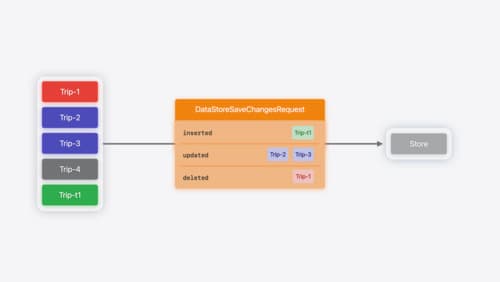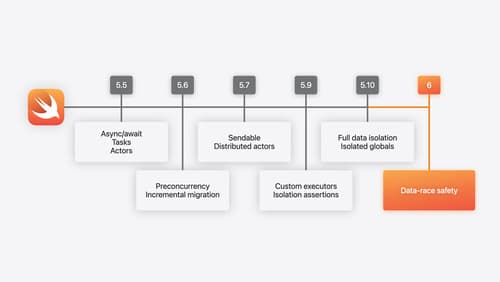What are the perils and pitfalls with SwiftData?
Asked on 2024-08-05
1 search
The perils and pitfalls with SwiftData are not explicitly detailed in the provided context. However, there are several considerations and complexities mentioned that developers should be aware of:
-
Custom Data Stores: While SwiftData allows for the use of custom data stores, this flexibility can introduce complexity. Implementing support for any persistence backend using the new datastore protocol requires careful configuration and understanding of the backend being used (Create a custom data store with SwiftData).
-
Schema Management: SwiftData provides tools for schema management, such as the model macro and the index macro. However, developers need to be mindful of how they define and manage their schemas to avoid issues like duplicate models and inefficient queries (What’s new in SwiftData).
-
Concurrency and Data Safety: SwiftData operates within the broader context of Swift's concurrency model. Data races and concurrency issues can arise if not properly managed. Swift 6 introduces compile-time data race safety, which can help mitigate these issues, but developers need to adopt the new language mode and potentially adjust their code (What’s new in Swift).
-
Performance Optimization: The way queries are written and how data is indexed can significantly impact performance. Developers need to use features like the index macro to optimize queries, especially for large datasets (What’s new in SwiftData).
For a more detailed exploration of these topics, you can refer to the sessions mentioned:

Create a custom data store with SwiftData
Combine the power of SwiftData’s expressive, declarative modeling API with your own persistence backend. Learn how to build a custom data store and explore how to progressively add persistence features in your app. To get the most out of this session, watch “Meet SwiftData” and “Model your schema with SwiftData” from WWDC23.

What’s new in Swift
Join us for an update on Swift. We’ll briefly go through a history of Swift over the past decade, and show you how the community has grown through workgroups, expanded the package ecosystem, and increased platform support. We’ll introduce you to a new language mode that achieves data-race safety by default, and a language subset that lets you run Swift on highly constrained systems. We’ll also explore some language updates including noncopyable types, typed throws, and improved C++ interoperability.

What’s new in SwiftData
SwiftData makes it easy to add persistence to your app with its expressive, declarative API. Learn about refinements to SwiftData, including compound uniqueness constraints, faster queries with #Index, queries in Xcode previews, and rich predicate expressions. Join us to explore how you can use all of these features to express richer models and improve performance in your app. To discover how to build a custom data store or use the history API in SwiftData, watch “Create a custom data store with SwiftData” and “Track model changes with SwiftData history”.
